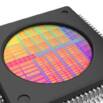
[Free] Ic Design &Amp; Simulation: From Concept To Implementation
Integarted circuits , Circuit design – Free Course
What you’ll learn
- Understand the fundamentals of integrated circuit (IC) design, including the principles of digital and analog circuit design, components, and system-level consi
- Gain hands-on experience with popular IC design and simulation tools, such as SPICE, Cadence, or LTspice, to model and simulate integrated circuits.
- Develop the ability to analyze and optimize circuit performance, focusing on parameters like power, speed, and noise, while troubleshooting design issues during
- Learn how to translate a circuit design into a working model, ensuring the design's functionality, reliability, and manufacturability through simulations and ve
Requirements
- No specific requirements
Description
Linear Integrated Circuits (LIC) are pivotal in the realm of electronics, serving as the backbone for numerous applications. This course delves into the intricacies of operational amplifiers, voltage regulators, and analog multipliers, among others. Students will explore the nuances of feedback mechanisms, stability analysis, and frequency response, gaining a comprehensive understanding of how these circuits function under different conditions.
This course also emphasizes practical applications, enabling students to design and implement circuits for signal processing, filtering, and amplification. Through hands-on labs and projects, learners will apply theoretical concepts to real-world scenarios, enhancing their problem-solving skills and technical proficiency. By the end of the course, students will be well-equipped to tackle complex challenges in the field of electronics, making them valuable assets in industries ranging from telecommunications to consumer electronics.
In addition to theoretical knowledge, the course on Linear Integrated Circuits (LIC) places a strong emphasis on practical skills. Students will engage in simulation exercises using industry-standard software tools, allowing them to visualize circuit behavior and optimize designs before physical implementation. The course also covers advanced topics such as noise analysis, power management, and the integration of LICs in digital systems.
By bridging the gap between theory and practice, this course prepares students for careers in research, development, and innovation. Graduates will possess the expertise to contribute to cutting-edge technologies and drive advancements in various sectors, including automotive, aerospace, and healthcare.
Author(s): Dr.Leo Joseph








